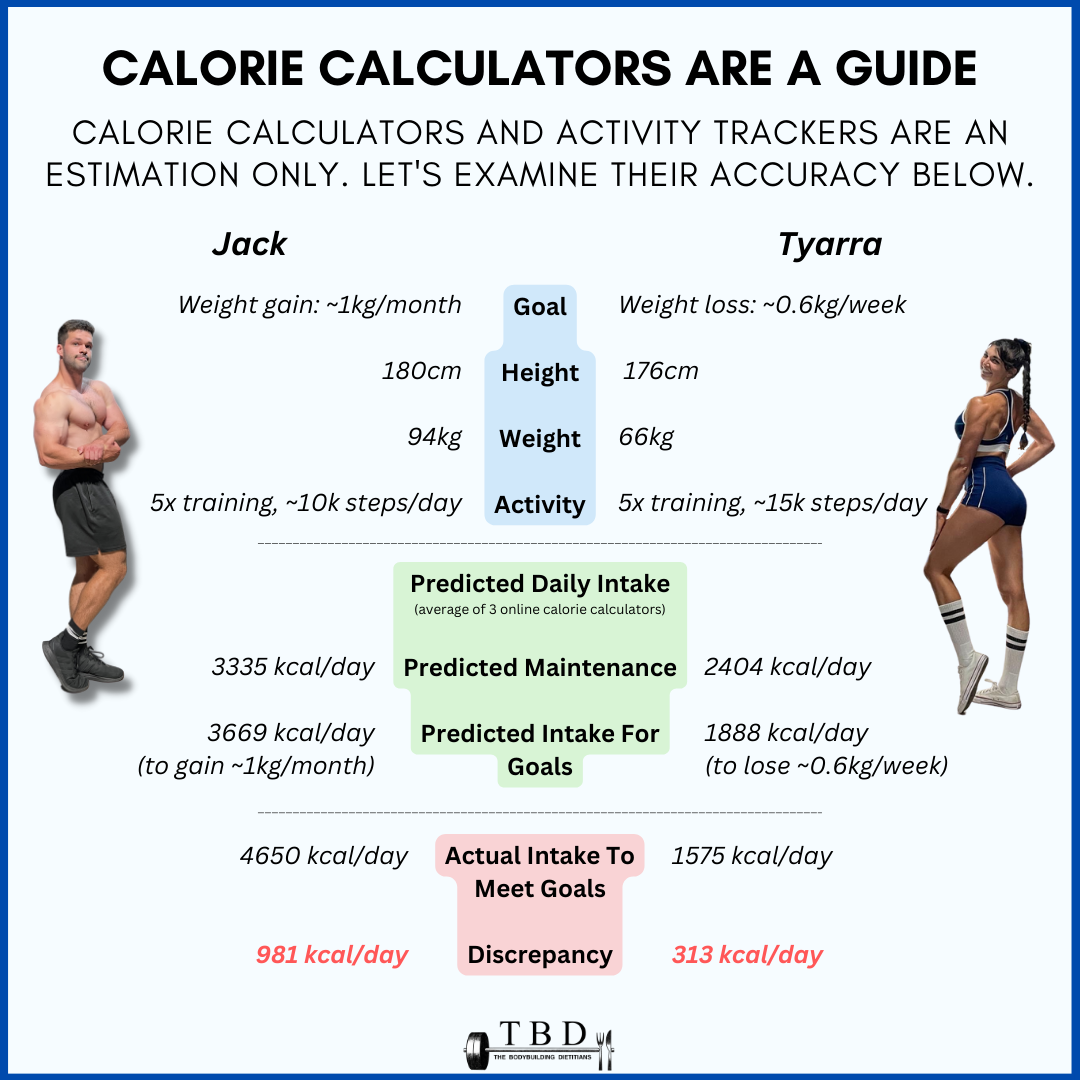Don’t rely on these calculators for perfect math.
It’s reasonable to say that most people are curious about how many daily calories they require to either:
▪️Maintain their weight
▪️Lose weight
▪️Gain weight
Given this, and since “calorie calculator” is such a quick google search away, it’s understandable that someone would be intrigued to know their calorie requirements.
The caveat is: these calculators are estimations at best, and their values shouldn’t be treated as gospel.
Why?
Well, an online calorie calculator will usually ask you for a few pieces of data, including:
Age, height, weight, gender, activity level & body composition goal
From this it will then provide a calorie value which claims to be the exact amount of energy you require to achieve your goals. However… these questionnaires fail to factor into their equations:
▪️Resting heart rate
▪️Immune status
▪️Respiratory rate
▪️Training intensity
▪️Sleep duration & quality
▪️Walking gait & speed
▪️Sweat rate
▪️Thermic effect of food
▪️Posture & hand gestures
▪️Voice projection
▪️Daily step count
This reiterates the notion that the metabolism is flexible, not fixed. Plus, it’s HIGHLY adaptive, hence it’s unreasonable to treat online calculators as a gold standard measurement for determining daily energy requirements.
Calculators are a starting base which can land you within a ballpark range for estimated calorie targets. However, bear in mind (and as the infographic above infers), a ballpark can be quite large, and Tyarra and Jack’s estimations were out left field by >300 and >900 calories respectively.
So the question is, how can you determine how many calories you ACTUALLY require to achieve your goals?
Our best advice is to track your own individual data including habitual calorie intake, daily fasted morning bodyweight and daily step count across a two-week time frame that is representative of normal life with work + training demands and a regular sleep schedule. From this, you can collect averages and identify trends, which then guides you in the direction of how YOU need to manipulate your calories to achieve maintenance, a deficit or surplus.
